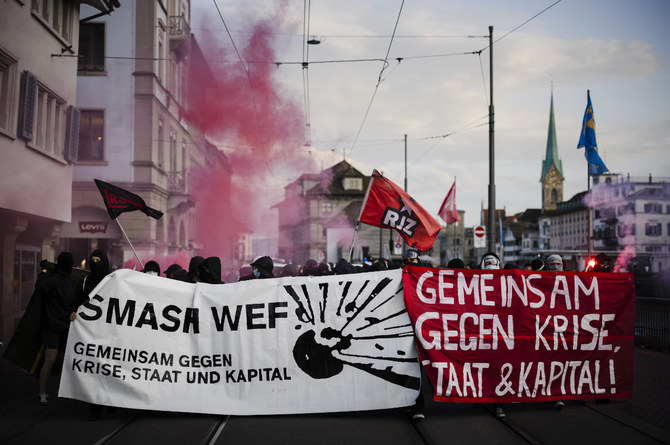
- ARAB NEWS
- 02 Jul 2025

In under a week the who’s who of global business world will gather in the Swiss Alpine resort town of Davos for their annual pow-wow, the business-cum-leisure jamboree that is the annual meeting of the World Economic Forum. The meeting normally takes place in January when Davos is covered in pristine, white snow, but this year will be held in spring — a first in the history of the WEF, and a different and unique setting for those taking part.
The meeting is unprecedented in many other ways as well. This will be the first gathering of global business leaders since the outbreak of the pandemic, with the meeting taking place after a gap of two years. As everyone knows and has seen, much has changed in the world over the past two or three years; a lot more than in the past 20-odd years, perhaps.
At the one extreme, the pandemic has led to a dramatic change in the way we live. It has also brought untold misery to almost half the global population, with job losses running close to a billion, and a death toll that is still being disputed across the world, as is evident from the spat between the World Health Organization and the Indian government over the actual number of victims in India.
Two years and more of economic chaos, along with job losses, unforeseen medical bills and pay cuts, has led to a spike in poverty and pushed inequality to new heights across the world. The rising inequality becomes even more stark when compared with the wealth of global billionaires, which has risen dramatically over the past three years, as most of the companies and their bosses benefitted from unprecedented government generosity in terms of tax breaks and subsidies to tide over the pandemic-enforced closures and lockdowns.
It is not just the pandemic that has wreaked havoc around the world. The global climate crisis, too, has accelerated and made its impact felt in an unprecedented manner, with long spells of drought, flash floods, retreating glaciers, searing heat waves and blizzards. In many countries, several of these extreme weather events now occur every year.
Yet, emissions of carbon dioxide and other greenhouse gases keep on rising, reaching new highs each year.
So terrible has the situation become that the latest report by the Intergovernmental Panel on Climate Change was stark in its condemnation of the way the world is heading after having ignored the many warnings issued over the past decade or two. An exasperated UN Secretary-General Antonio Guterres has accused political and business leaders of failing to take the issue seriously and lying about their commitments to tackling emissions.
Against this backdrop, global business leaders may want to digress from their habitual activities at Davos — striking business deals to make their companies and themselves richer, or simply combining business with the pleasure that comes with being in the media spotlight for a week, preaching to the world and, at the same time, making empty promises or coming up with new buzzwords.
It is time for change, and there is no better place to start than the annual jamboree that kicks off on May 22.
Ranvir S. Nayar
Meanwhile, the commitments and promises made at Davos somehow remain behind as echoes in the Alpine valleys, rather than traveling back with the leaders to their corporate boardrooms to spark change.
Under normal circumstances that approach may still have worked, and the world’s richest and most exclusive club would have been able to get away with yet another week of big-sounding words. But in 2022, the world is anything but normal, and even though they may be perched high in the Swiss Alps, the billionaires at Davos would do well to keep their feet firmly on the ground for once.
Responsibility for most of the problems that the world faces today lies as much with political leaders as it does with business chiefs. Indeed, in many instances, governments take a policy decision because it is lobbied for by big business.
However, business bears the responsibility for climate change since it is corporate greed that has led to unprecedented and often illegal damage to our natural resources, ranging from forests to mines and beyond.
Business leaders also bear the responsibility for heightened inequalities as it is they who set the fat bonuses and pay packages for themselves, even when their companies’ performance has fallen off a cliff, while remorselessly firing thousands of workers, or setting pay packages that have resulted in the gap between the highest and lowest paid in the same company rising to sky-high levels. For instance, the top 1 percent of employees in US companies earned 13.8 percent of all wages, while the bottom 90 percent had to split 60 percent of the total wage bill. Gender pay parity is yet another hollow promise made by corporate bosses.
It is time for change, and there is no better place to start than the annual jamboree that kicks off on May 22. Let Davos 2022 be the meeting the world remembers for really changing the way we live and do business, with humanity and global wellness at its core, rather than personal interests or greed that have defined WEF and Davos so far.
• Ranvir S. Nayar is managing editor of Media India Group.